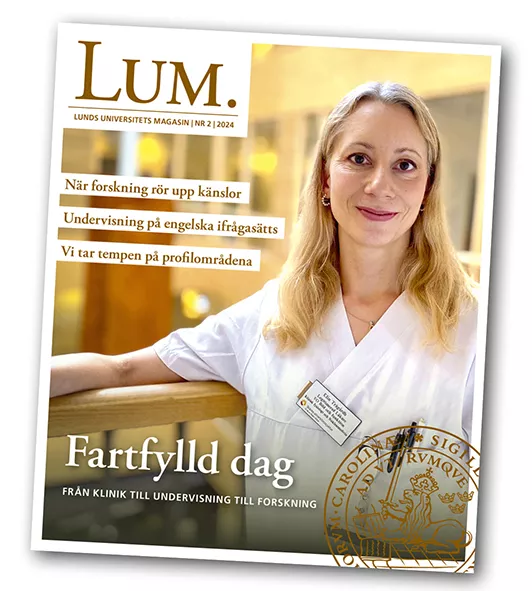"Everyone has their own standard which they think is right. However, there are often different views in the group that clash", says Calle Rosengren, work environment researcher at the Department of Design Sciences at LU.Together with Kristina Palm from Karolinska Institutet and Ann Bergman from Karlstad University, he is conducting a research project that explores how flexible working life constantly renegotiates the boundaries between personal and working life.
In their study, 50 employees, primarily administrative staff and managers, at three large companies completed a logbook of when they allowed their private lives trickle into their working life and vice versa. As well as how it made them feel when they did – engaged, creative, frustrated or stressed.
"Most people seem to feel better If they have a thoroughly considered strategy and stick to it", says Calle Rosengren, for example, the time separator who works a certain number of hours per day and then finishes - irrespective of whether or not they are finished with a work task.
Previous research has shown that one of the most stress-reducing things in a workplace is to be personally able to control how you complete your work tasks. However, for this to work in a group, it is important for a discussion to take place that creates acceptance of the fact that one way does not have to suit all.
"A total separator becomes frustrated if he or she is forced to attend to private matters at work or if they have to take work home with them, in contrast, a total integrator is stressed if all work must take place in the workplace", says Calle Rosengren. He sees himself as an inconsistent alternator – someone who has not decided on how he wants things to be.
There are different attitudes in the individual research group; however, Calle Rosengren says it is unproblematic as this has been discussed. Those who want to send emails at night and on the weekends may do so although, on the other hand, they cannot count on the time separator in the group responding outside of work hours.
Their study shows that those who allow work and private life to cross over entirely are becoming fewer.
"We are seeing a trend in which total integrators are changing strategies and choosing to set different kinds of boundaries", he says, adding that the background is often related to having been stressed or close to burning out.
Strong reactions have been caused by the figures highlighted in the tabloids, claiming that employees use as much as two hours of their daily working hours to private surfing online. Calle Rosengren does not lend a lot of credit to these statistics, which they have not managed to get access to as researchers. He says there is often some kind of surveillance company behind the studies that would like to sell a digital product to the employers.
"There is a degree of moral panic. To surf for a while or have a short private conversation could be seen as equivalent to what was previously a stretch of the legs or perhaps a cigarette", says Calle Rosengren.
In the study, they saw that inspired work was also carried out at home and at strange hours. One person felt extra creative and committed on a Saturday night so he prepared a PowerPoint.
It also emerged that stress during the workday, more frequently than prior to the mobile phone era, was commonly linked to private matters such as issues with preschool pick-ups. Calle Rosengren says that working life has changed so quickly that today there are two different coexisting control systems, something that is partly related to the generation you belong to.
In a previous study that Calle Rosengren conducted, it was found that younger employees in the workplace were frustrated by the fact that it was not primarily the work results, but your visibility at your desk for long days that was valued.
"We cannot have two control systems – a time-based contract and a results-based contract simultaneously."



